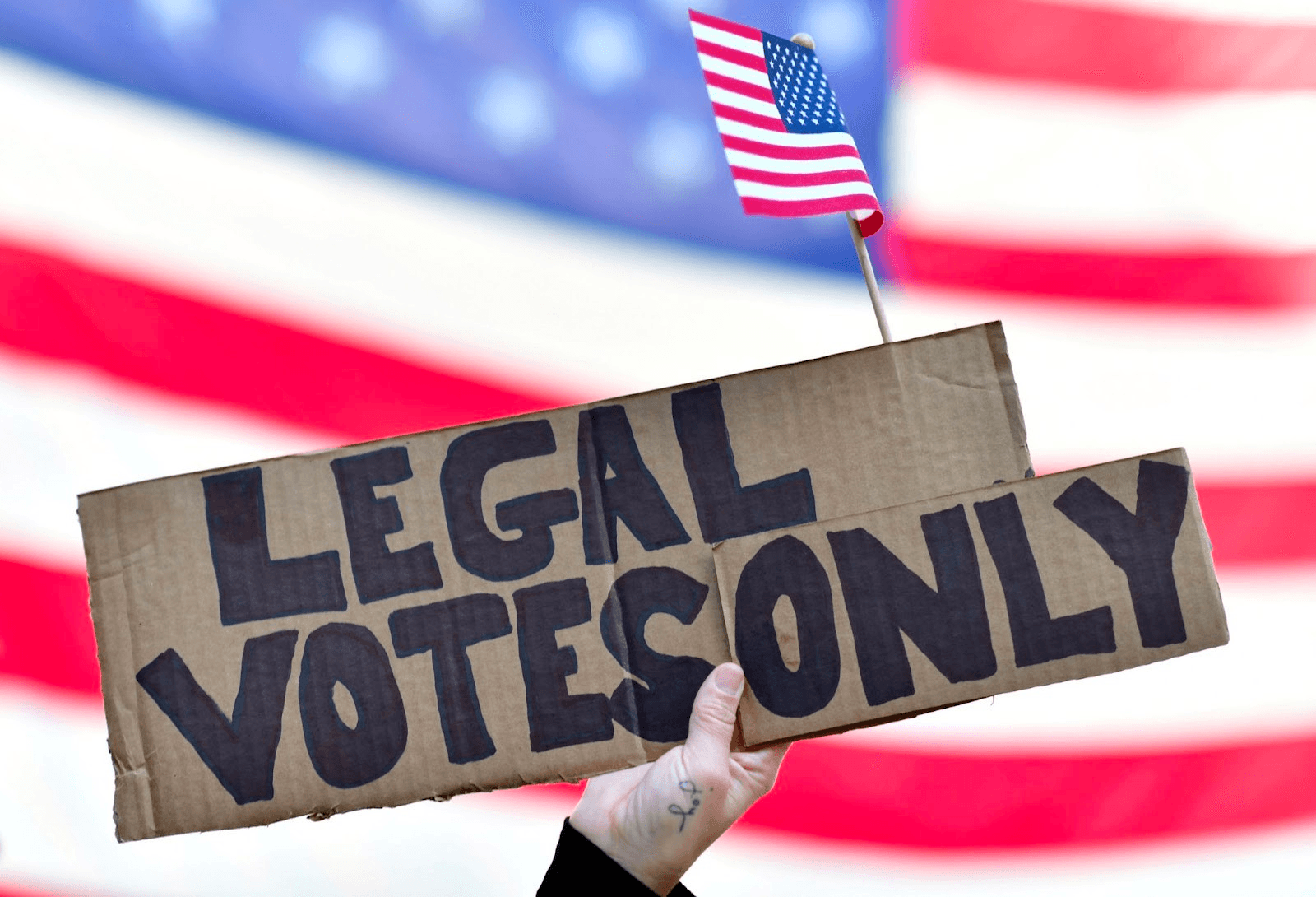History
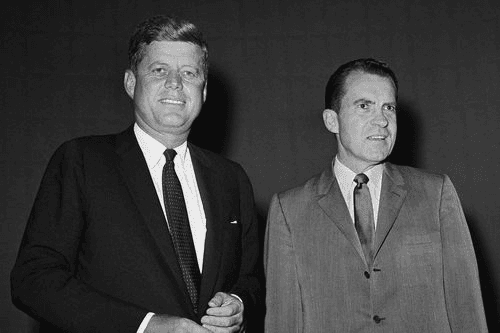
- 1960|
Kennedy-Nixon Presidential Election
Since the presidential election of 1960, numerous allegations of widespread voter fraud in Illinois and Texas have emerged about the contest.
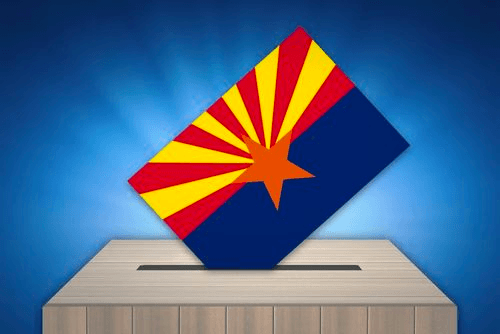
- 2021|
Brnovich v. Democratic National Committee
Brnovich v. DNC is one of the Supreme Court’s most significant — and divisive — voting rights cases in recent years.
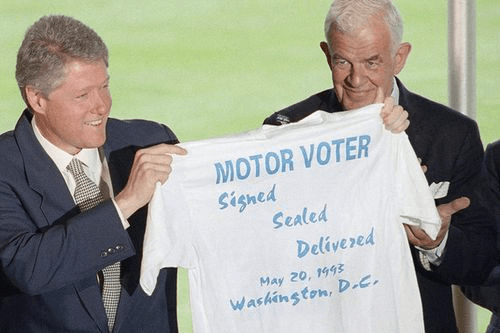
- 1993|
National Voter Registration Act
In 1993, President Clinton signed the National Voter Registration Act, making voter registration more accessible and widespread.
Introduction
What is Fraud?
Republicans argue the 2020 election was plagued with voter fraud, while Democrats argue that research shows that voter fraud is extremely rare and inconsequential to elections. What drives these narratives? Is there a middle ground?
The issues of voter and election fraud stir throughout the country during election cycles. Voter fraud encompasses many acts: false information when registering to vote, voting when ineligible, voting more than once, using someone else’s name to vote, or registering and voting in multiple locations for the same election. Fraud can also be committed by election boards or campaign officials. Often, these focus on altering a ballot, paying a voter in exchange for a specific vote, or engaging in voter suppression.
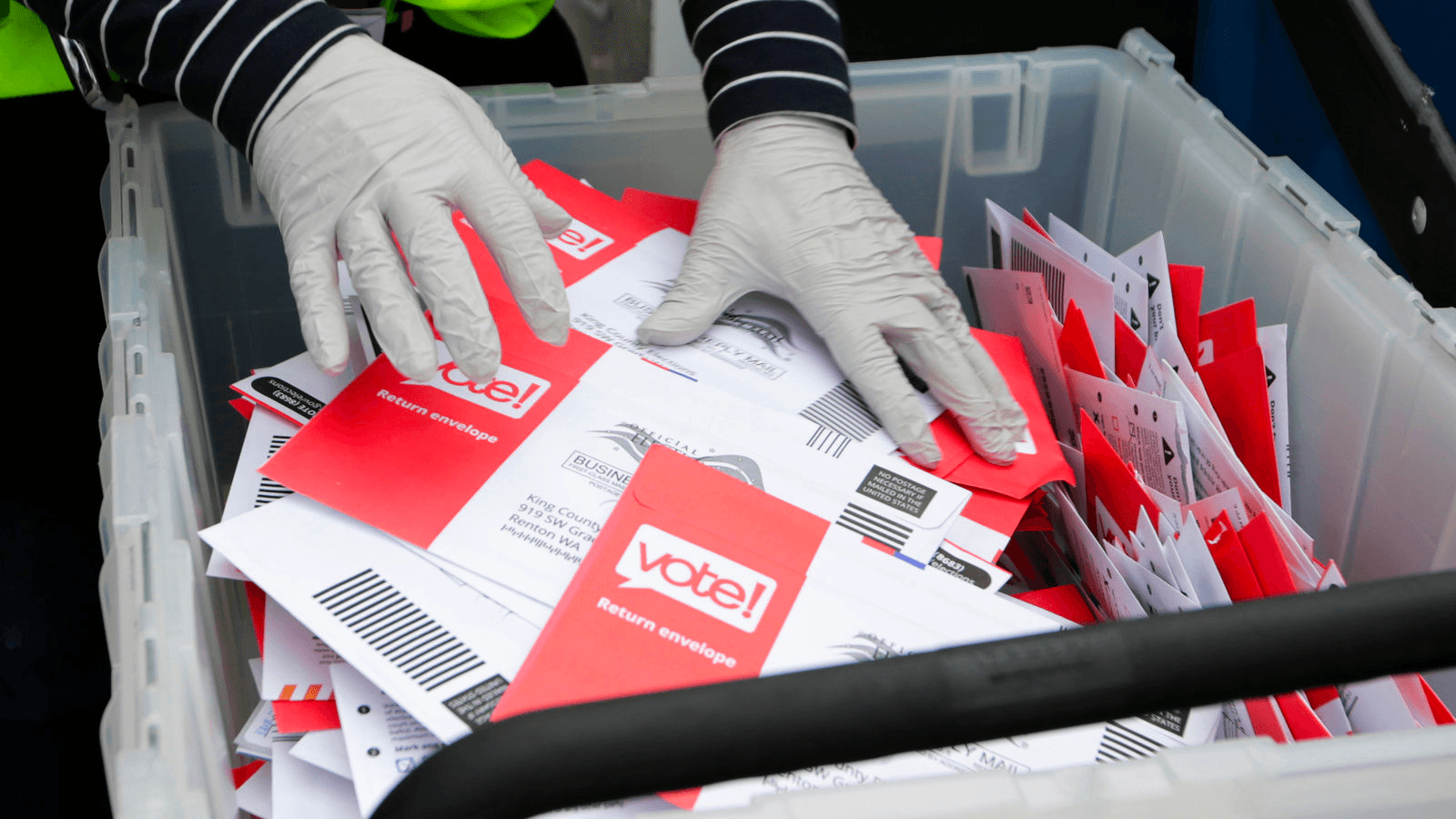
Driving voters to polls, giving workers time off to vote, giving stamps for absentee ballots, or creating fake petitions are not federally an election crime but may violate state laws. The legality of ballot harvesting has been debated; it includes a third party collecting voters’ absentee ballots to deliver to election offices. While it is illegal in states like North Carolina and Pennsylvania, other states allow campaign volunteers to collect these completed ballots. Some argue that a volunteer could tamper with or throw out the ballot before it reaches the ballot box.
Modern Claims
Claims and worries of voter fraud in the 2020 presidential election centered on the unprecedented numbers of absentee ballots due to the Covid-19 pandemic. In Wisconsin, only 27 potential cases of fraud were found out of 3.3 million ballots cast. Most were from a singular city, placing an incorrect mailing address.
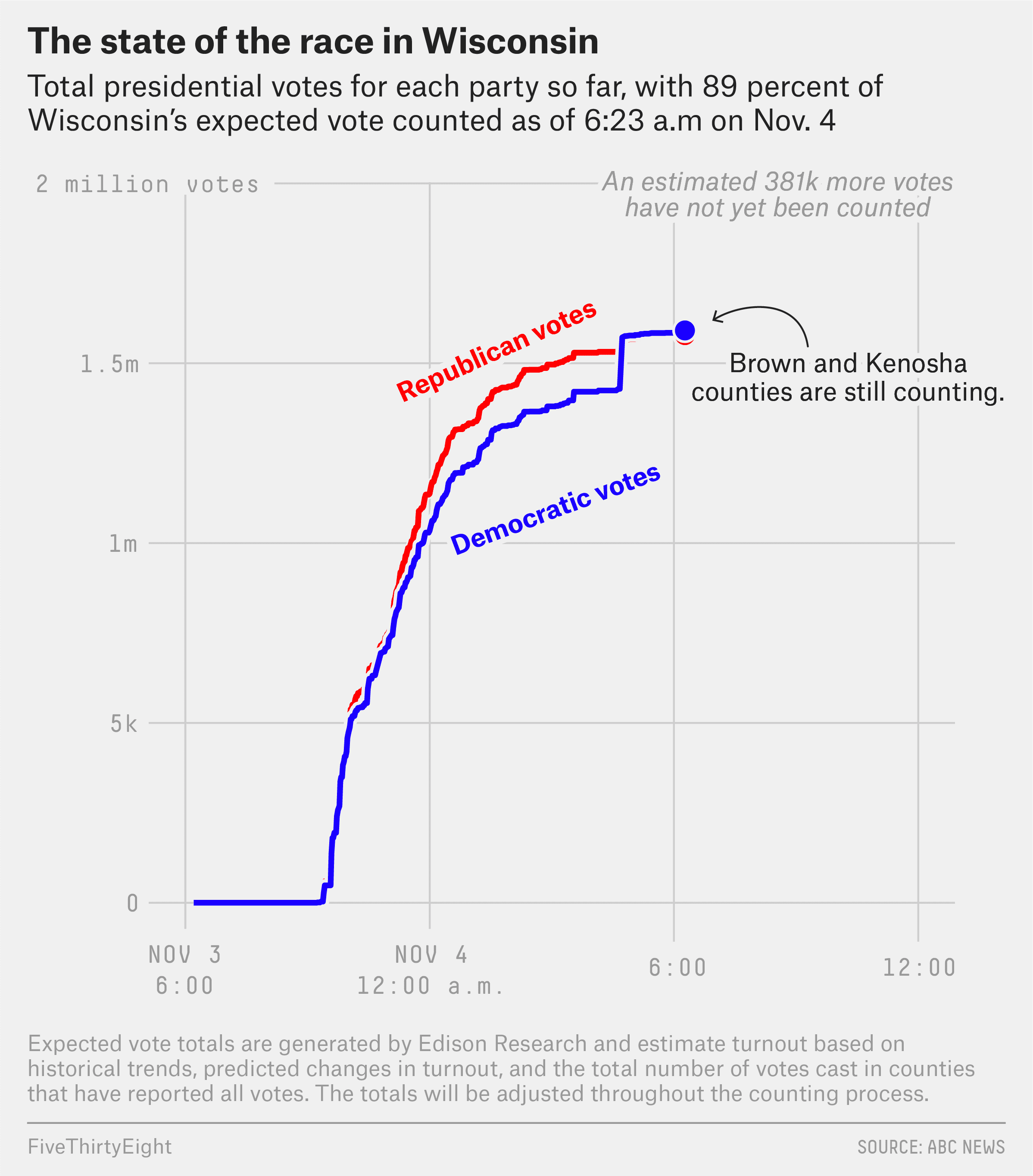
Most Democrats argue that while voter fraud may be present, it is inconsequential to the number of ballots cast in total and will not make a difference, as shown in Wisconsin. Clerical errors will always occur when millions of votes are being tallied in a short time span. However, concerned with smaller-scale elections, the National Commission on Federal Election Reform took a stance on the issue, arguing that it “is not the magnitude of voter fraud. In close or disputed elections, and there are many, a small amount of fraud could make the margin of difference.”
Discussion Questions
- Why do you believe there are so many anti-fraud efforts when studies show that voter fraud is too inconsequential to affect election results?
- Can legislatures pass voter reform the prevents potential fraud while also protecting voter access?
- Should ballot harvesting be illegal?
Narratives
Left Narrative
Research shows that voter fraud is extremely rare. While it is important to ensure election integrity, the government must not take extreme actions that affect our free elections for false claims of fraud. It is important to prevent voter fraud in elections with policies that do not restrict Americans from voting.
Recent studies have disputed the Right’s argument that non-traditional voting methods such as absentee ballots and early voting increase voter fraud, especially with the 2020 election. The Left is supported by statistics and studies that shine a light on the disproportionality of voting rights and how disenfranchised groups are affected.
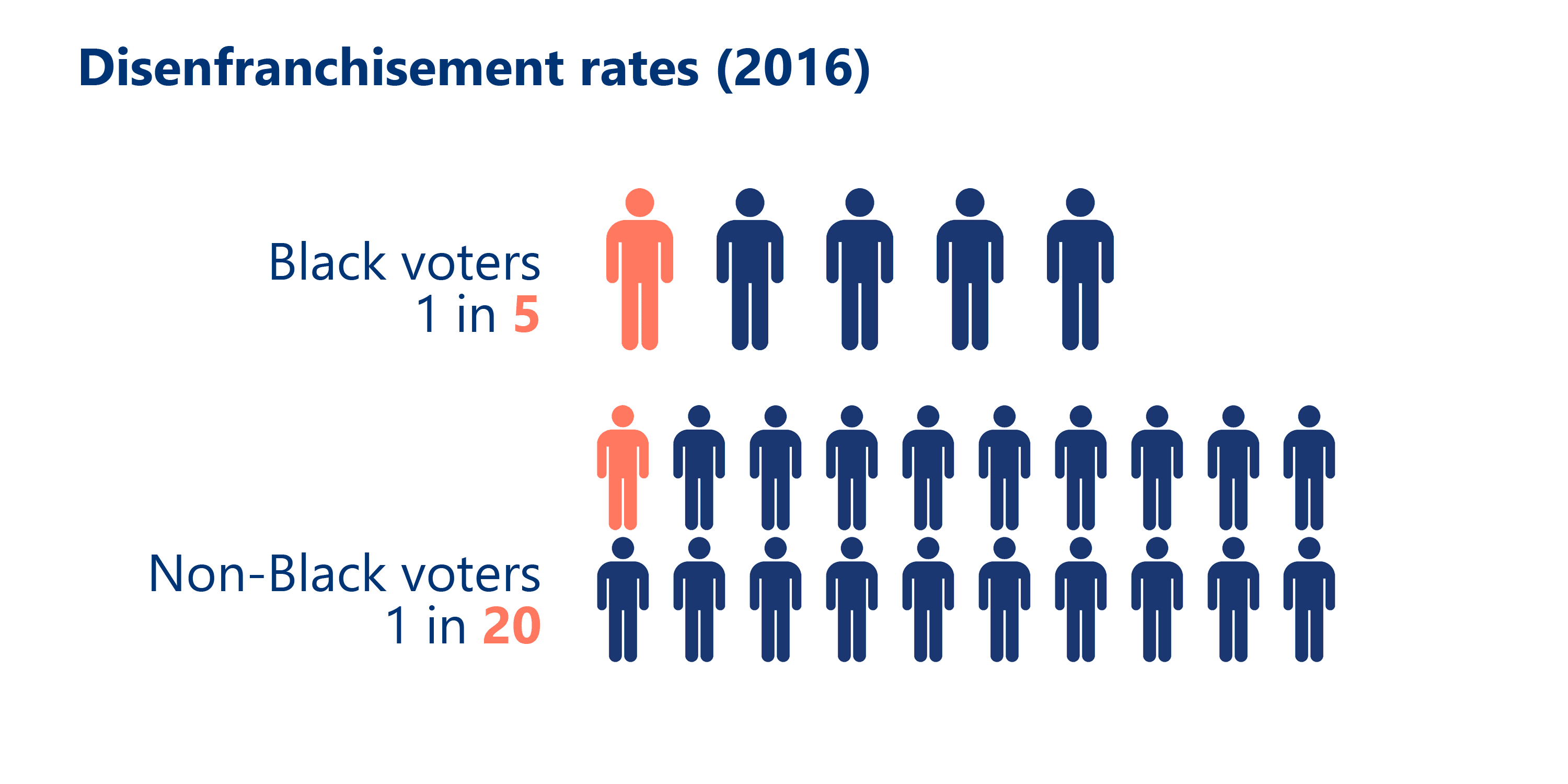
- In 2019, the Center for American Progress found that on average, congressional redistricting shifted on average 59 seats in the House of Representatives. According to the study, Republicans tend to win more of these seats because they find themselves to be spread out over rural and suburban areas while Democrats, who tend to be in more urban areas, are packed tightly together in fewer districts.
- In 2012, Rick Scott, Governor of Florida, took all non-citizens out of the state’s voter registration files to ensure there were no illegal immigrants voting. Of the 182,000 suspected of being non-citizens (and therefore not eligible to vote), the state found only 85 non-citizens who were actually registered to vote. Of 12 million total voters, only one fraud conviction was found.
- Many groups have been disenfranchised when it comes to voting, and ex-felons are one of them. As of 2020, 5.17 million felons, 43% of whom have already finished their sentences, are disenfranchised due to a prior conviction. Each state has a different definition of what strips the right to vote, but in states like Indiana, it includes those who have been convicted of a crime. This is so broad that it is interpreted to include any form of misdemeanor like minor drug offenses, vandalism, or petty theft. 2.27% of the eligible voter population is unable to vote because of a current or past conviction. Of that group, 75% have completed their sentencing and are fully immersed back into their communities or are on supervised probation.
Opposition to voting rights proposals in Congress by Republicans is grounded in arguments of voter fraud and vote grabbing. Republicans on Capitol Hill believe that proposals such as the For the People Act are an attempt by Democrats to grab more votes. Additionally, they believe that over-expansion of voting rights dilutes the votes of eligible and qualified voters. Democrats agree with Republicans that election security is a priority and that it is important for eligible votes to be properly counted. However, while Republicans, who have repeatedly blocked voting rights legislation, see it as a vote grab, Democrats simply want to dismantle systemic barriers to voting that would ensure every American has the right to vote.
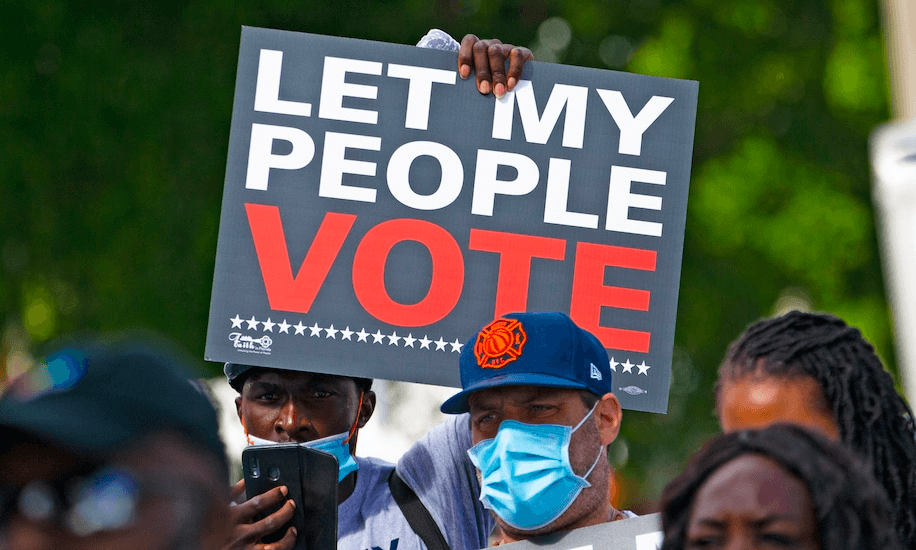
In many states, Republican legislators have been pushing back with proposals that suppress voter rights which overweighs votes of specific, and privileged, demographics. Voting restriction laws were introduced in major contentious states such as Texas, Georgia, and Florida as well as consistently Republican states like Iowa, Utah, Louisiana, and Oklahoma. Effects on voting include eliminating mail-in ballots without a valid request, decreasing the number of ballot drop boxes, harsher voter ID requirements for all voters, and expanding voter purges. A Texas District Court initially did not approve of the governor’s order for one drop box per county, but it was overturned after an appeal to the all-conservative state Supreme Court. This meant that counties such as Harris County, where Houston is located with 2.4 million registered voters, were allowed only one drop box. Laws like these are unnecessary and unjust barriers to voting that systematically disadvantage minority demographics, particularly African American and disabled voters.
Right Narrative
All forms of voter fraud must be prevented to secure election integrity. Americans will not be able to trust their elections if they lack integrity. For the good of the nation, fraud must be stopped. Many instances of potential fraud were left uninvestigated in 2020 and 2021, and Democrats have a history of less-than-fair elections, such as in 1960. From ballot harvesting to changes in election rules, Republicans seem to be the only party worried about stopping fraud.
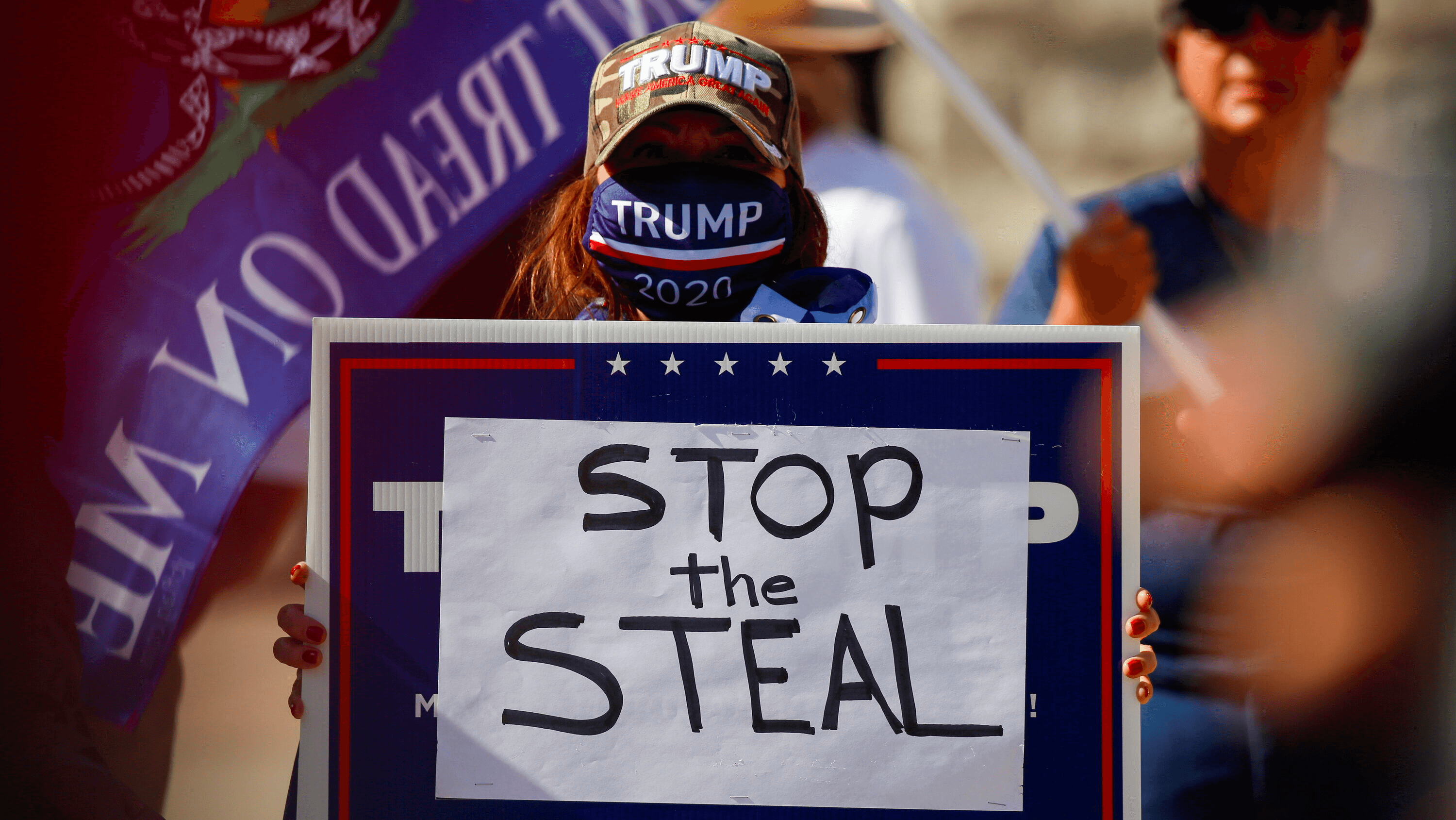
To ensure a fair and free election the Right’s priorities include:
- Ending ballot harvesting.
- Solving problems with election counting, including Dominion Voting’s adjudication system.
- Ensuring that only legal citizens are voting in elections. This includes fighting suggestions that non-citizens should be allowed to vote such as in College Park, Maryland. This also includes investigations into age-old controversies of deceased voters.
- Securing elections through the implementation of popular voter ID laws.
Election fraud has undoubtedly happened throughout the history of the United States. Since 1991 there have been 1,143 criminal convictions of voter fraud. In 2020, with the widespread dissemination of mail-in voting, many claims on election security emerged. Even Democrats were initially distrustful of mail-in sparking the “USPS Conspiracy”. Republicans were the most skeptical following the 2020 presidential results which were legally contested in the months following the election. Claims of widespread voter fraud could not ultimately be substantiated; however, Republicans felt that many claims were not properly investigated. Here were some of the nationally acclaimed fraud disputes by the Trump campaign and by some Trump voters:
- Georgia Surveillance Video. A video which emerged from Fulton County Georgia purportedly showing poll workers uncovering guidecases of ballots and scanning them multiple times.
- Dominion Voting’s Adjudication System. Dominion voting became a flashpoint following the election and as recently as August 2021 has been subpoenaed by the state of Arizona. A video from Coffee County Georgia showed election workers demonstrating how votes could be electronically flipped by poll workers.
- Poll Observer Disenfranchisement. On election night, media sources reported poll observers were removed from certain counting sites.
- Secret Cabal. A Times article emerged in February of 2021 detailing a “shadow campaign” which worked to change election laws to influence the results of 2020. Many Trump voters took this as an admission of media cover ups of key election stories and the work of activist judges to undermine the 2020 results.
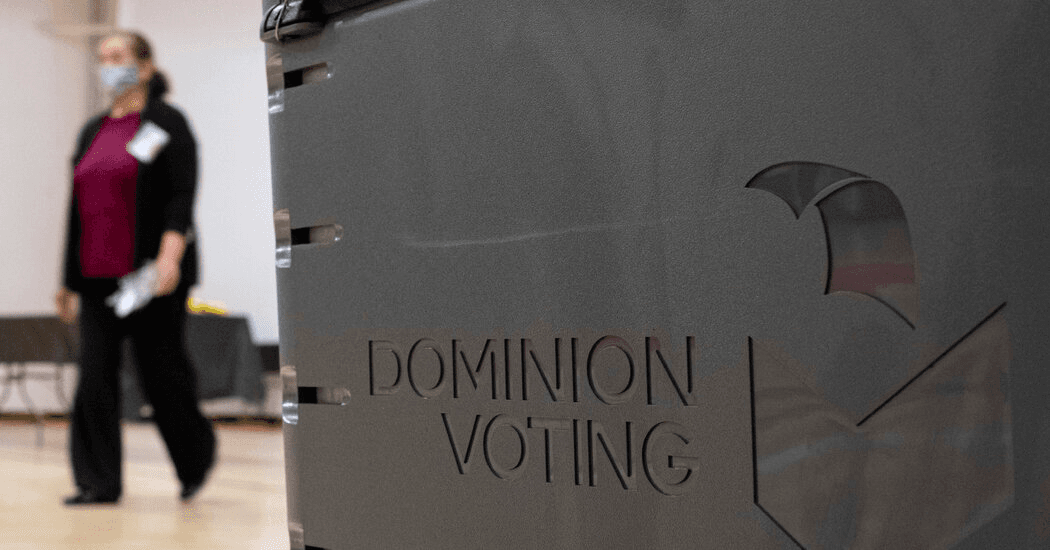
In the future, the best methods of preventing this are through the elimination of ballot harvesting and through the implementation of voter ID laws.
Ballot harvesting is when a 3rd party picks up absentee ballots on behalf of someone who cannot make it to the poll or illegally procured them from mailboxes for a harvester. The prime target of harvesting tends to be nursing homes; however, there have been some reported instances of ballot discarding of US Armed Forces absentee ballots. Ballots are at risk of being discarded, or worse, altered for the opposite candidate. Undercover reporters such as Project Veritas have shown an instance of a ballot harvester illegally trading hard cash for ballots they collect by unknown actors. In 2018, the state of California legalized the practice which the Republican Party wishes to fight.
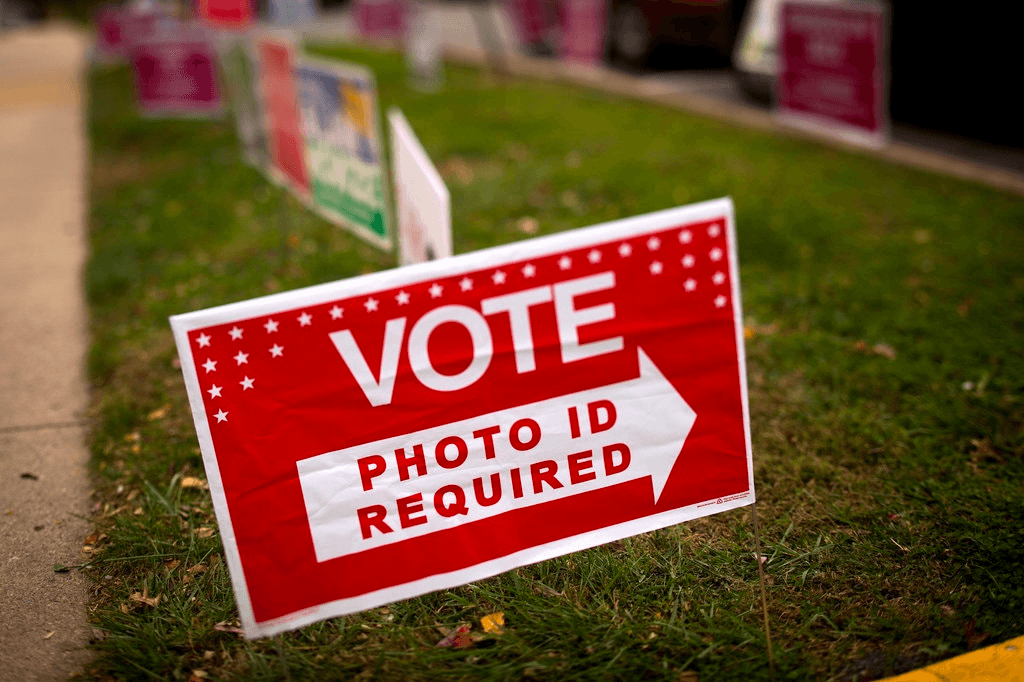
From flying on an airplane to getting food supplies from a food bank, a form of photo identification is required for important proceedings. Voting is one of, if not the, most important job an American citizen has, meaning photo ID should certainly be required to vote. Photo ID does not require prerequisite driving experience since individuals can obtain passports or state-issued photo ID; they are all accessible to legal citizens who want to obtain one. Presenting a photo ID is needed for basically every facet of modern day life; however, the Democratic Party pushes a narrative that voter ID is racist because minority communities lack photo ID at higher rates. Many on the Right find the insinuation that minority voters are less capable of obtaining photo ID to be offensive and racist.
Bipartisan Narrative
Classroom Content
Browse videos, podcasts, news and articles from around the web about this topic. All content is tagged by bias so you can find out how people are reacting across party lines.

Republican Issues Subpoenas for Wisconsin Election Info
- Article •
- 7/6/2021
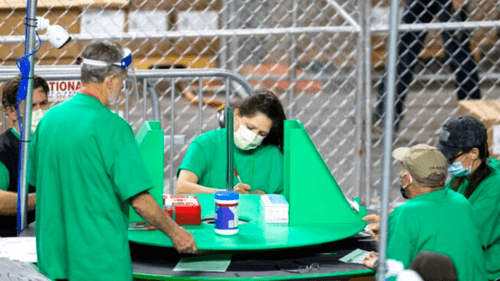
Arizona Senate Issues Fresh Subpoenas for 2020 Election Audit
- Article •
- 6/27/2021

Arizona has identified fewer than 200 cases of potential voter fraud in last year’s presidential election, undercutting Trump’s claims
- Article •
- 6/16/2021
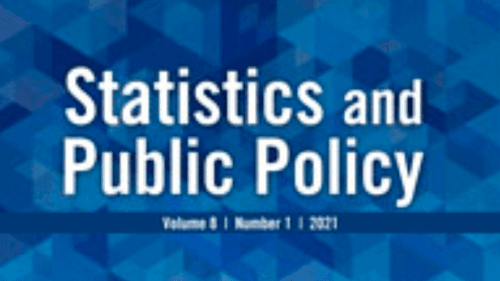
Does Voting by Mail Increase Fraud? Estimating the Change in Reported Voter Fraud When States Switch to Elections By Mail
- Academic •
- 4/3/2021
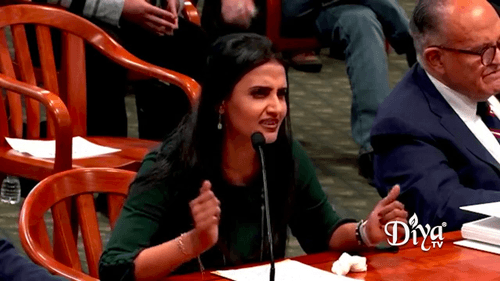
RAW: Full Hima Kolanagireddy testimony before Michigan House alleging election fraud | Diya TV
- Video
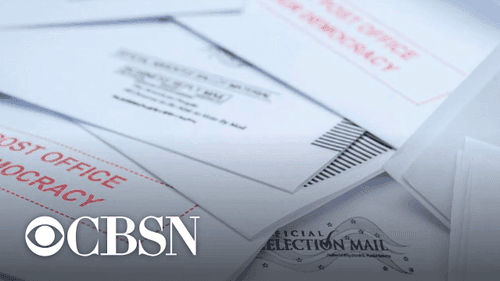
What you need to know about “ballot harvesting”
- Video •
- 8/1/2020
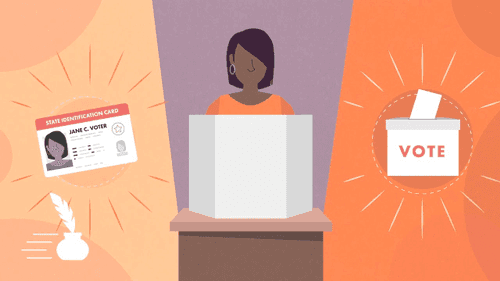
Do Voter ID Laws Burden Voters?
- Video •
- 1/28/2020
